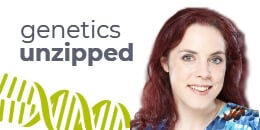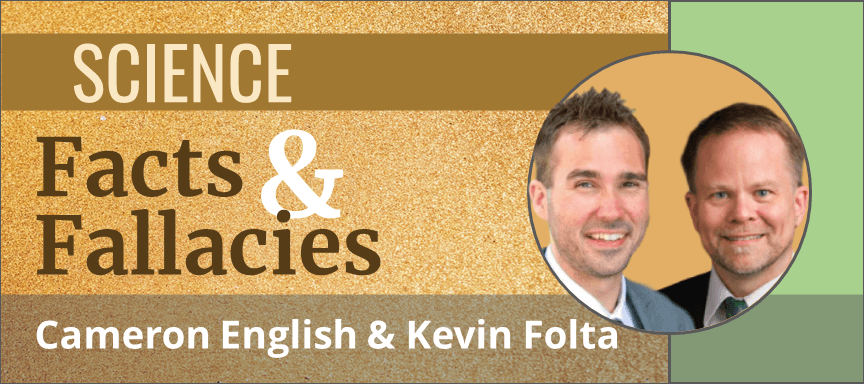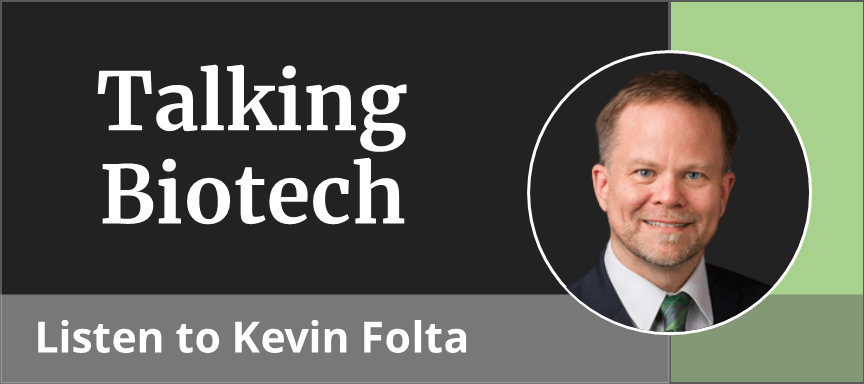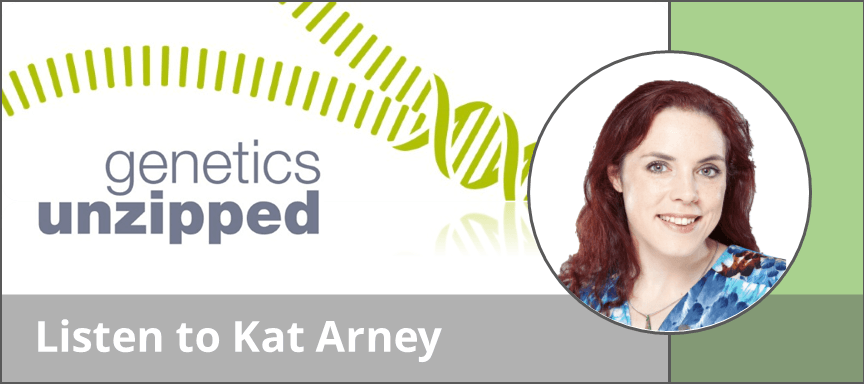Geneticist Kat Arney takes a look at the world of epigenetics — finding out if more than DNA passes on to the next generation with the help of some Mickey Mouse mice, discovering how the term ‘epigenetics’ is used and abused in popular culture, and addressing the headlines that claim ‘Darwin was wrong’ when it comes to understanding heredity.
As Arney explains, in its simplest sense, epigenetics is the science of how genes get turned on and off. All the cells in your body (more or less) have the same set of 20,000-or-so genes. This is your genome – a set of biological recipes that your cells use to make the molecules that keep them functioning and keep you alive. The genetic instructions remain the same in every cell, but this additional layer of control – over and above the As, Cs, Ts and Gs of the basic DNA code – is known as ‘epigenetic regulation’.
Epigenetic changes within our cells act as a kind of ‘memory’, enabling them to remember what they’ve been told and what they’re doing. Some researchers now suggest that these kinds of memories might not be restricted to the life of a single cell, but can be passed on as cells – or even whole organisms – reproduce. And it’s this concept that has leaked into newspapers, seeped into medicine, and got its fingers into scientific fields from psychology to sociology.
However, there is little strong evidence of so-called transgenerational epigenetic inheritance in humans, and even the most compelling example of the Dutch ‘hunger winter’ – the babies born during the wartime famine in the Netherlands – is not solid proof.
But there are intriguing hints from the work of Iranian-born researcher Minoo Rassoulzadegan, whose accidental creation of a litter of mice with white gloves and socks – just like Mickey Mouse – paved the way for a discovery that would change our thinking about inheritance. Rassoulzadegan showed that the inheritance of this colouring wasn’t due to genes, but to small fragments of RNA (a molecule similar to DNA) carried in sperm.
This phenomenon harks back to an idea first posed by Charles Darwin, who suggested that small particles of inheritance known as ‘gemmules’ travelled around in the bloodstream of an animal, gathering information about its characteristics. These gemmules then combined in the embryo after fertilisation to create all the bits of the body in the combined image of its parents.
The concept of gemmules was discarded once researchers started to understand the role of genes in heredity. But it could be argued that the small fragments of RNA in eggs and sperm are analogous to modern-day gemmules. Researchers have even discovered RNA fragments moving around the body in little packets called exosomes, which can be taken up by cells and influence gene activity, so this may be a way that the rest of the body can ‘talk’ to eggs or sperm, passing messages on to the next generation.
Although there’s a long way to go to prove this actually happens in animals, let alone humans, if the principle holds true we’re going to need a major rethink of our conventional understanding of genetics and heredity.
Read more about epigenetics in Arney’s piece in Little Atoms.
Full transcript, links and references available online at GeneticsUnzipped.com
Genetics Unzipped is the podcast from the UK Genetics Society, presented by award-winning science communicator and biologist Kat Arney and produced by First Create the Media. Follow Kat on Twitter @Kat_Arney, Genetics Unzipped @geneticsunzip, and the Genetics Society at @GenSocUK
Listen to Genetics Unzipped on Apple Podcasts (iTunes) Google Play, Spotify, or wherever you get your podcasts














